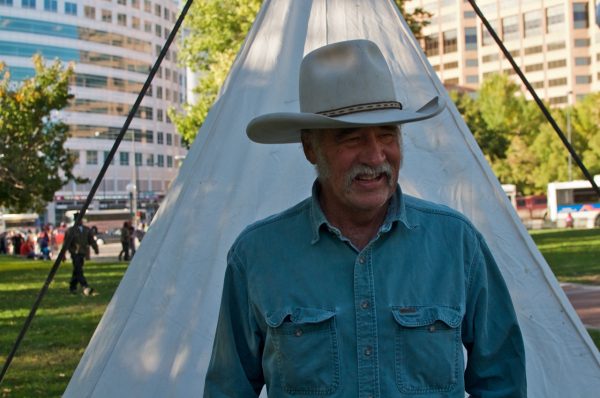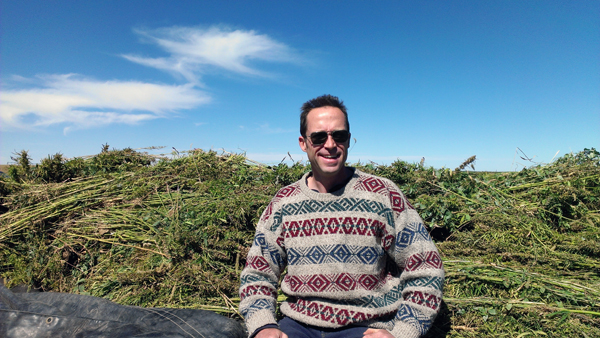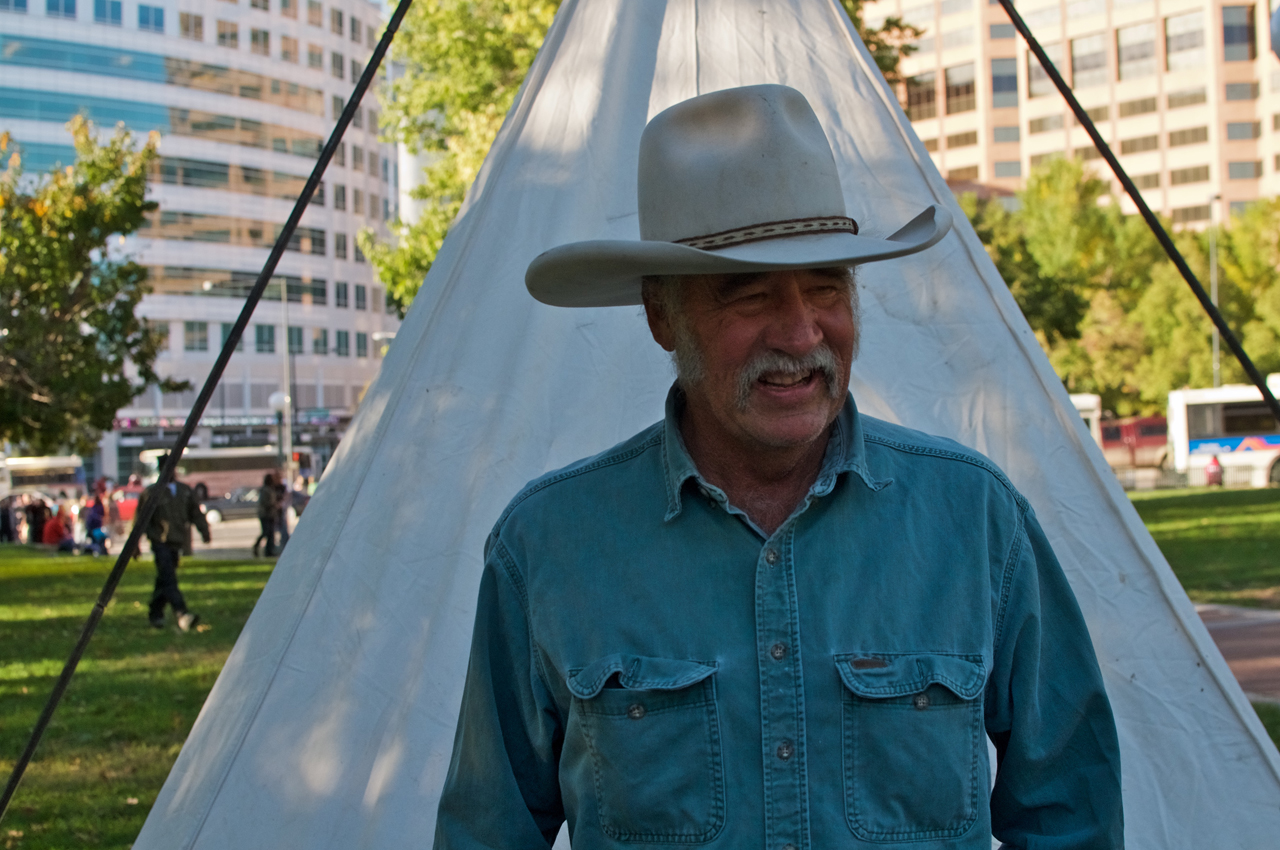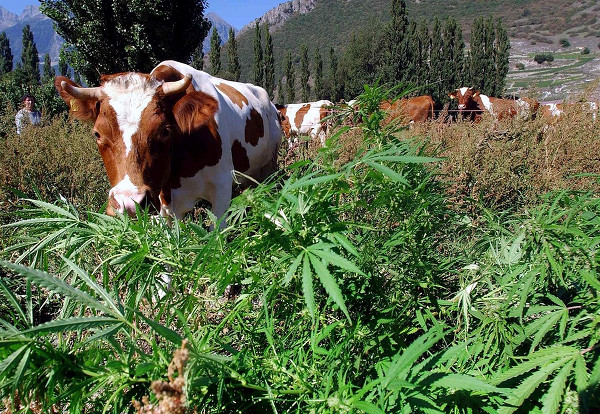
Mission accomplished! Colorado is the FIRST state to grow and successfully harvest, without DEA or State interference, an industrial hemp crop in the US since 1957. — in Springfield, CO. in 2013.

One evening, with the moon high in the sky over the Denver Capitol, Representative Wes McKinley, and Jason Lauve spoke of all the potentials which Cannabis/hemp has proven throughout history. They sat on the State lawn with their Teepee and tent among the others who were also voicing their ideas, using many forms of expression at Occupy Denver in November of 2011. There were many people with so many other important topics and ideas, the conversations varied a lot and many spoke about solutions. What was impressive is something we see in a community, conversation and listening were happening. As the conversation about hemp progressed, they also recognized that they both had experience with the Rocky Flats Nuclear weapons facility.
“Representative Wes McKinley opened the door to hemp in the United States of America and what we see today!”
Jason Lauve, “Mr. Hemp”
Rep. McKinley was on the Special Grand Jury investigation about the consequences of that facility in Colorado. Criminal violations of environmental law forced the weapons plant to shut down in 1989 for extensive contamination with over 21 tons of weapons-grade plutonium. The work that Mr. Lauve created in his career has involved the visualization of scientific and architectural simulations of molecular to universal proportions. His work involved architectural and interior animation of the Rocky Flats site during the closure project. Most of what Mr. Lauve spoke of that evening was the research demonstrating the remediation of soils using Cannabis/hemp, it can literally clean the soil, water, and air. It turns out that McKinley came to a presentation in Walsh, Colorado in 2011 which Jason hosted about growing hemp.

Two weeks after their conversation on the State Capitol lawn, Representative McKinley called Mr. Lauve and invited him to the Capitol to have a conversation about “growing a garden.” With a vague idea of what they would be meeting about, on the day of their meeting, rolls his wheelchair down the halls of the Denver State Capitol being pulled by his service dog, Escher. Years before, Jason was hit by another person on a mountain during the winter where he enjoyed volunteering his time to teach disabled people how to ski. He can walk, but sometimes over long distances, the wheels help. As they cross the threshold of the grand door entering into a small office where Wes McKinley introduces Jason Lauve to another Representative and 2 legislative attorneys and McKinley says, “Okay, we are going to write a hemp bill today,” or something like that. After speaking about the history and why people believed the stereotypes of marijuana, which is the same as Cannabis/hemp, Representative McKinley agrees that the intent is to show that the plant can clean plutonium from the soil and states, all we want to do is “grow a garden.”
Many people who have been involved with the plant didn’t think that this legislation would pass, but just like winning his trial for possessing 34 ounces of Cannabis in 2009, Mr. Lauve believed he can do it. For the next few months, Jason had to babysit the bill every day so it wasn’t changed or hijacked by the vultures around. The first hurdle was the fiscal note and the plan was to use this as a way to clear the path with law enforcement.
The momentum kept building and each hearing, committee, and floor vote passed the novel hemp legislation, with no changes, unanimously.
Today, over 40 people from around the country came to pick the first industrial hemp harvest by hand. The volunteers came from all over the country, including California, Texas, Idaho and more. This was a beautiful day and considering the Government is shut down, it was fascinating to see Americans in a farm field harvesting hemp by hand.
The planting was very sparse and we wanted to keep the roots for a remediation study. It was a very nostalgic and historic feeling, hard on the back. Next year we will use machines.




